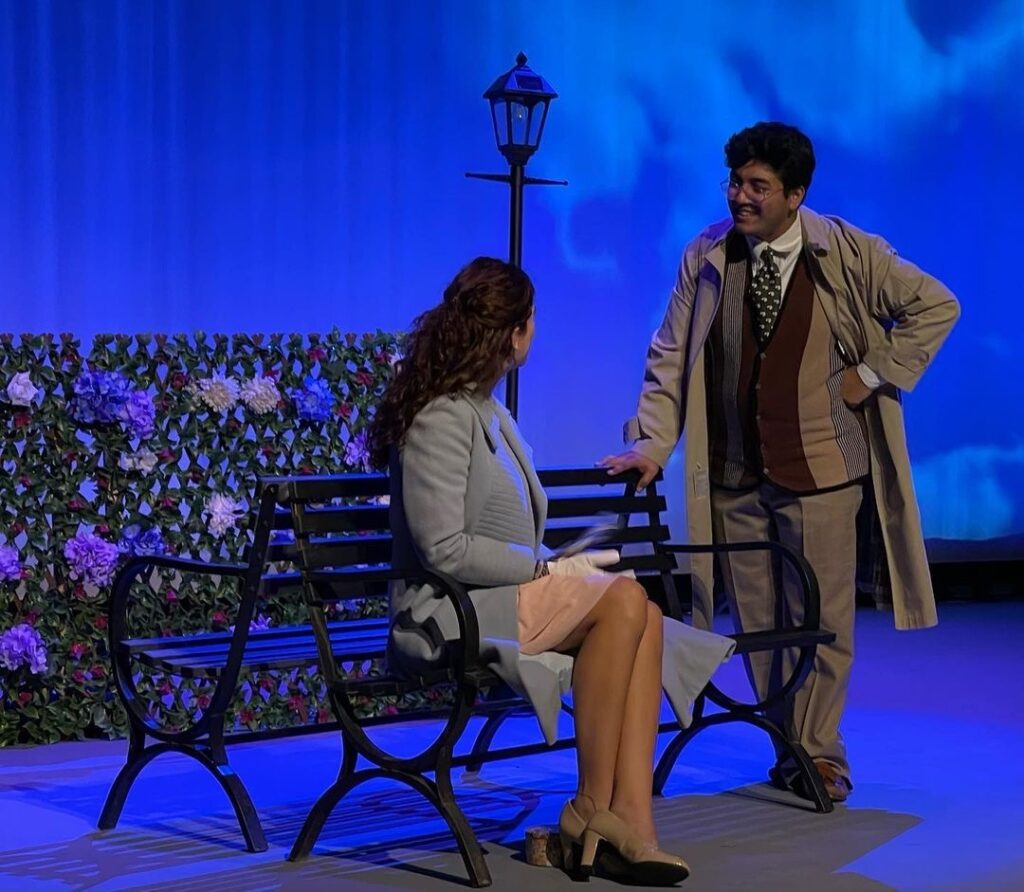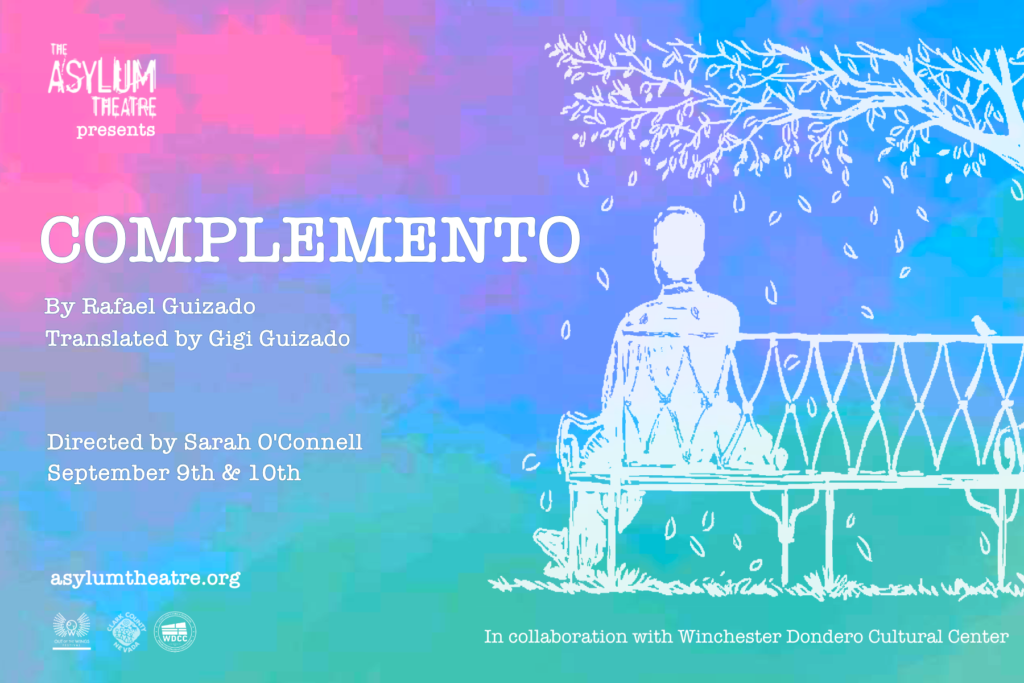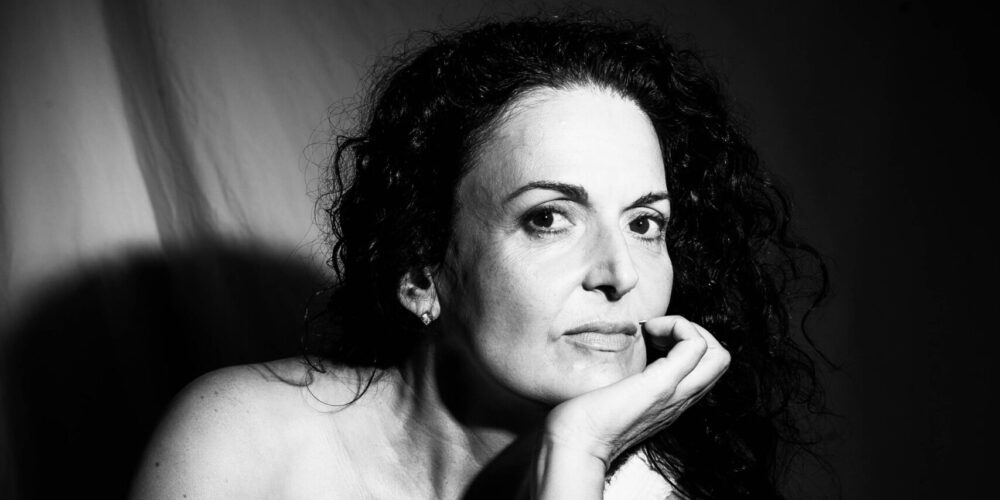
If Moliére wrote magical realism it might look a lot like Complemento, a comedy in four acts, by Rafael Guizado, which The Asylum Theatre is premiered in English translation this weekend. The scene structure, the mistaken identity, the humor all seem to wink at the 17th-Century French playwright. The protagonist is reminiscent of Shakespeare’s beloved character, Puck, in A Midsummer Night’s Dream. And yet, Complemento by Colombian dramatist Rafael Guizado is an original and modern play about prioritizing love above all else.
Complemento garnered critical acclaim as a radio drama and contributed to Rafael Guizado’s reputation as one of the most important playwrights in Colombia, where his body of work has been memorialized again and again. In 1943, when it premiered onstage in Bogotá performed by the Compañía Nacional de Teatro , L.E. Nieto Caballero reviewed Complemento favorably in comparison to Jean Girardeaux, “Complemento makes you think of the technique of “The Apollo of Bellac”, which it has surpassed, although it seems hyperbolic to say so.”
“Complemento makes you think of the technique of “The Apollo of Bellac”, which it has surpassed, although it seems hyperbolic to say so.”
L.E. Nieto Caballero
Girardeaux is considered a master of modern drama. His plays were translated and published in English, and The Apollo of Bellac premiered in 1942 in Rio de Janeiro, Brazil which borders Colombia. The two plays have strikingly similar plot devices (no spoilers!). Yet, prior to its stage debut with Colombia’s national theatre company, Complemento had been broadcast as a radio play in 1940 with much fanfare on the national public radio founded by Guizado.
It is ironic to discover this connection now through years of research, because I first set out to translate Complemento when I was studying drama in college. In theatre history class, an assignment was given to select a contemporary play, have it approved by the professor, and then write an analysis of the play. With a desire to focus on Latin American theatre, I chose Complemento and offered to translate it in addition to writing the analysis. Not being familiar with Guizado’s work, the teacher declined my proposal by saying, “We’re focusing on the ‘masters of modern drama’. Disappointed, I thumbed through our very heavy and expensive textbook of the same name, past Jean Girardeaux and dozens of European and North American authors, to finally settle on Ibsen. I learned the hard way that translation is both a measure of an author’s greatness and a vehicle for the author’s exposure.
It wasn’t until after graduating, developing an acting career, marrying, and raising a family that I revisited my dream of translating Complemento. I was spurred by the death of a mentor, which caused me to notice the invisibility of the work we had created together prior to the internet age. All of the newspaper articles and glowing reviews were undiscoverable through search engine queries, buried by time. A heightened awareness of my own mortality arose, and I felt the urge to complete my unfulfilled desire to translate the mysterious play written by the grandfather I never knew. I soon discovered that a history more impressive than I had ever imagined was also hidden from view: lost in microfiche images of vintage periodicals stored in the depths of distant libraries in another language.
Researching and solving the puzzle of not just the nuance of the play, but its origins, and my own, has been a magically rewarding adventure. Complemento has given me a deeper exploration into Latin American theater history than college had offered. It has also united me with long lost relatives, led me to translators in England, and partnered me with researchers in Colombia. To quote the play’s irresistible main character, “Like dew is to the flower, Complemento has done supreme good for my soul.”
After being derailed by a lack of knowledge during my first attempt, it is my utmost pleasure to share Complemento in translation, and the historical legacy of Rafael Guizado’s work expertly researched and exhibited by Dra. Marina Lamus Obregón and Museartes. Sincere thanks to all who joined us at Winchester Dondero Cultural Center to experience Rafael Guizado’s mastery of modern drama in translation. Special thanks to Catherine Boyle, Professor of Latin American Cultural Studies at King’s College London and Director of Out of the Wings Collective for joining us remotely from London for the post-show discussion. Stay tuned for an upcoming video of the show.
“Like dew is to the flower, Complemento has done supreme good for my soul.”
Rafael Guizado

